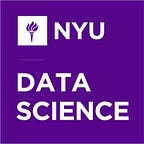Hiring Clinical Faculty for 2023: Interview with CDS Clinical Associate Professor Pascal Wallisch
We are currently hiring Clinical Faculty for 2023. The position has the opportunity to make a significant impact by teaching data science courses at the undergraduate and graduate levels. We caught up with CDS Clinical Associate Professor Pascal Wallisch to discuss his experience as a clinical faculty member at CDS as well as what the role has to offer incoming hires.
This interview was lightly edited for clarity.
You’ve been a Clinical Faculty member with us since 2020. Can you tell us briefly about what brought you to CDS and what most appealed to you about the position?
I heard that the new major in data science was approved by the State in 2019, so I wanted to get involved with that since then. I was thrilled when a position became available in spring 2020 and applied immediately. What appealed to me most was the opportunity to craft a new culture in a startup-like atmosphere, and doing something that mattered — data science, and that will matter a great deal more in the future.
What is your favorite aspect of your role and what do you find most challenging about it?
Honestly, I like pretty much everything about it. It’s a great job. If I had to pick one thing, it would probably be the fact that data science appeals to students from all across the university — it makes for a great double-major or — at least — a minor. So even people who are not solely interested in data per se are drawn to it. This is really great, as it is truly interdisciplinary, and interacting with students from so many different backgrounds is extremely enlightening. In terms of challenges, as I started during the height of the Coronavirus pandemic, delivering classes in a hybrid mode (both online and in person) requires quite a bit of logistical choreography, but I don’t mind it. I understand that students need a bit of extra flexibility during these trying times. There is also a flip-side to people from all kinds of academic backgrounds coming to such a new field, and that is that they usually come with preconceptions — and different preconceptions — as to what the class should be. Students with a math background expect a math class, students with a CS background expect a coding class, students with a science background think of it as a data analysis class and so on. Of course our classes have aspects of all of these, but only as a means to an end, not an end in itself, as data science integrates and transcends all of these perspectives.
Can you share with us something you’ve learned during your time as Clinical Faculty that (pleasantly) surprised you?
Probably that the things we teach really are directly applicable in the real world. Not every academic topic translates equally well into real world applications. But as all of our guest speakers from industry have confirmed, the things we teach the students are directly useful, and extremely valuable. This is confirmed by the fact that our students are able to secure great jobs, in spite of the severe economic downturn (particularly in tech), and they report back to me that what they learned was in fact mission critical from day 1. So that was a pleasant surprise.
What do you see as the greatest benefit of being a Clinical Faculty member?
There are many benefits. First of all, as a research and teaching faculty member, one can truly embody Humboldt’s vision of what higher education should be — the unity between teaching and research. Also, as clinical faculty members report directly to the Director of the Center for Data Science, there are no split loyalties with other departments, which allows both for full commitment and great flexibility to tackle whatever needs might arise. It’s important to be able to go all in. As clinical faculty members are completely unburdened by the pressure to publish that is so prevalent in academia, they don’t have to rush papers into publication when they are not ready. Finally, as students are more and more strongly organized via group chats and the like, professors find it harder and harder to “hold the line” and enforce the integrity of academic standards. In turn, clinical professors can insist on the highest possible standards, particularly now — in the Chegg era. This will pay dividends to our graduates in the long run. An earned reputation for uncompromising rigor and high academic standards will add value to their degrees.
What advice do you have for someone new stepping into the Clinical Faculty position?
My advice would be that they understand what they are signing up for to ensure a good cultural fit. This person needs to be open-minded, as data science is a fast developing discipline. Some of the things I’m teaching now didn’t exist a couple of years ago. They also should love teaching and connecting with students. Technical prowess is necessary, but by itself is not sufficient. A deep commitment to personal excellence is also a plus. As data science is so inherently multi-disciplinary, it does require a sufficiently broad mindset. The bar is high. If that all resonates with them, this is a truly exceptional job that is likely conducive to advance human greatness and flourishing.
Any additional thoughts you’d like to share?
Data science is awesome. I wish it had been around when I was a student. And we’re just getting started.
If you’re interested in applying to the Clinical Faculty position, please visit the Jobs page on our website.
